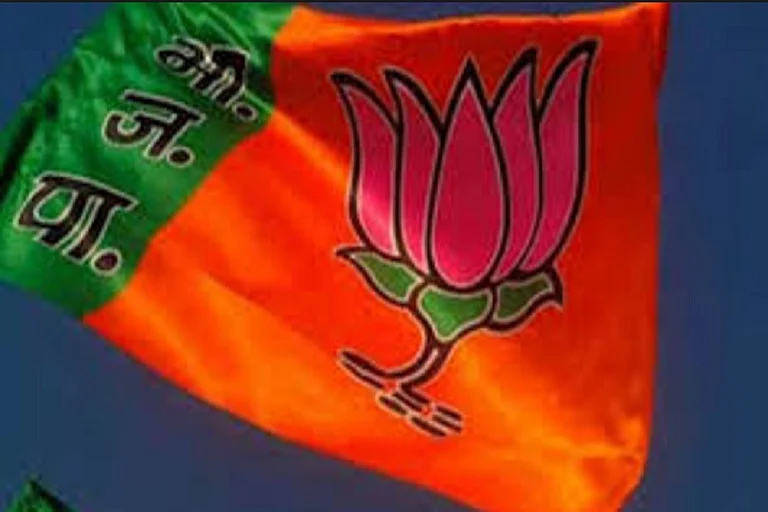A perfidious piece of legislation, the Quota Bill, thathas long been in the making is about to arrive. Its arrival will not give propershape to affirmative action; instead, it will, in its wake, signal the passingof a moment when discussion gives way to conflict, reason becomes subservient toidentity, cynicism replaces whatever little vestiges of idealism that remain,and an open future of possibilities is replaced by a close suffocating horizon.
Perhaps it will not matter at all; after all we have weathered worse storms.The costs will not appear catastrophic. It will not be a civil war; it may noteven be widespread protest. It will rather be a slow and insidious death of manyvalues we cherish, and it might be so insidious that we will not even noticewhat we have lost.
The combined weight of political interests, unimaginative and entrenchedideas and the burden of the past, make it unlikely that the Bill can becritiqued in any radical form. Yes, the government might assert itsreasonableness by staggering its implementation. Yes, it might still exclude thecreamy layer, but these will not be symptoms of moderation. They will be,rather, the small mercies that are often extended after a great travesty hastaken place.
The arrival of this Bill is, in some ways, an occasion for mourning and anoccasion for reflection.
Who is it that should mourn? And why?
***
All Those Who Care About Social Justice Should Mournfor injustice has not only taken its place but is carrying its name. Thecause of justice has been setback in more ways than one can list.
OBCs have appropriated the language of deprivation and the instruments toremedy them, that at best belong only to the SC/STs, the most deprived. By treatingunequals equally, we are violating justice. By misidentifying target groups, byusing blunt instruments, we are violating the very essence of justice.
Justice is premised on an ability to make fine distinctions, by adetermination to match ends to means. Our ends are unclear: Is reservation aboutcaste headcounts and representation? Is it about equal opportunity? Is it aboutcompensating for disadvantages that prevent promise and ability from beingtranslated into performance and marks? It is about anti-discrimination? Is itabout equal outcomes? Is it about creating a middle class? Is it simply aboutdisplacing upper castes? Each objective is different, each requires differentbeneficiaries, each has different normative underpinnings and each requiresdifferent instruments. But we have lumped them all together and reducedeverything to the logic of numbers. No wonder we cannot get clarity andconsistency over tricky questions like: Should, if at all, the creamy layer bedefined? Should minority institutions, some of which structure access to poweras much as any others, be excluded?
By reducing the deprivation to be targeted to a single dimension, caste, wehave obscured the true causes of lack of access. By suggesting that castematters more than income, we are giving a false sense of the causalunderpinnings of justice. By suggesting that quotas are an important andeffective instrument of promoting justice, over and above all other instruments,we are ensuring that real deprivation will continue to persist. In the process,we will render invisible other forms of deprivation. We will not genuinelyempower the poor, but confine them to a status where they remain fodder for aself destructive, symbolic politics.
Parliament will give its imprimatur, not to justice, but to an impostor.
All Those Who Care About the Nation Should Mourn forwe have fallen into the narcissism of small identities.
We inherited one of the most iniquitous, enduring and appalling socialstructures that any society has known. It would be moral blindness not toacknowledge the reality and persistence of caste, the daily violence andhumiliations it can still bring. But not all beneficiaries of reservationexperience these realities in the same way. Acknowledging caste should be astepping stone to transcending it, not perpetuating it in professional,educational and civic life. Instead of the language of citizenship, we will havethe language of caste; instead of reciprocity, competitive group competition;instead of a slow withering away of caste, an enhanced consciousness of itssalience.
In a society that very effectively mutilated the dignity of its members, thatdenied them the minimal bases for self respect, politics will be about apolitics of esteem rather than effectively securing the public good. What wassupposed to be an interim and exceptional measure for a group like SC/STs, whosetreatment was appalling beyond all measure, will become anentitlement for which any group with the numbers can clamor. It will come to define the very essence of justice, the very essence of politicsand the very meaning of citizenship.
Yes, South India may not have had a civil war, it has made its peace withreservation, but has it transcended caste? An anti- upper caste policy (howeverjustified) is not the same thing as an anti-caste policy. The Brahmins may havelong fled the South, their power in public life attenuated, but the strangleholdof caste and community persists. Just examine the Dalit OBC fault lines in SouthIndia or any other state.
The truth about caste should also acknowledge the truth about caste politics.The canard that caste has always existed, that it continues to exist, should notbe used as an argument to persist with it in public, professional and civiclife.
The only way of overcoming caste is to actually overcome it.

All Those Who Care About Alternative Futures ShouldMourn for government has foreclosed the possibility of experimenting withother and more effective instruments of social justice.
The government has decided that social policy can have only one mould, thatall institutions should look alike, that other schemes - deprivation indexes -for instance, will not so much as even merit consideration. The old paradigmthat imprisoned us should continue. This is not a polity that can brook adiversity of experiments; it is not a polity that can provide room foralternative imaginings of justice. Justice will be as the government defines it:all others, you have no space. The government does not want a conversation onjustice or equality,
On the other hand all the words we use in this argument - merit, excellence,inclusion, diversity, justice - have become unmeaning rhetorical tropes eachside uses to beat the other down. But we will not be allowed the space to thinkthrough the conditions under which the tradeoffs that seem to so insistentlydivide society will not longer be that stark? For instance, those who claimthat, by definition, excellence and inclusion are incompatible are wrong. Butequally, those who think that they can be made compatible simply by saying soare also perpetuating an illusion. For excellence and inclusion can be madecompatible under certain conditions. Out current institutional rigidities do notfully allow for these to be made compatible.
Instead of asking: "How do we create an education system, where no studentof promise is deprived of the education they deserve, because of their social orfinancial background?" we have committed ourselves to a non-answer to thisquestion.
All Those Who Care about Marginalized Groups ShouldMourn for their leadership has profoundly betrayed them. Instead of chartingan imaginative economic agenda that can liberate them from poverty, instead ofensuring that the state delivers the essential goods that are the minimum basesof social self respect, instead of creating genuine opportunities for them,instead of giving them the same choices and freedoms that the privileged have,their leadership wants to keep them trapped in a politics of dependent tutelage.
Instead of saying to the state: "Don’t give us crutches we cannotoutgrow, use the vast wealth of the state to create genuine opportunities"their leaders have taken the least effective path to social justice. And in theprocess they have ensured that all the achievements of all those who achieve somuch in the face of untold hardship will be diminished. In the process, theyhave ensured that they themselves cannot aspire to anything beyond their ownnarrow constituencies that do not wish to represent the nation as whole.
The politics of reservation represents an unconscionable diminution of socialaspiration, a will not to be liberated.

All Those Who Care About Higher Education ShouldMourn for whether staggered over three years or implemented in one go, wewill push an already deteriorating system to the brink.
Any expansion would be credible, not just if it were a statistical exercisein counting heads or rupees, but came with a credible plan to infuse new lifeand vitality into Higher Education.
What does it mean to expand existing universities, some of which already haveover one hundred and fifty thousand students? What does it mean to attract moretalent, when flagship institutions are already at forty percent facultyshortage? What does it mean to expand by thirty percent a system alreadytottering on the brink? Where are the new regulatory systems in place? Whycontinue with the irrational affiliated college system? Where are the newmechanisms to reform universities? What is the strategy for overcoming theimmense shortage of talent?
The expansion plan is not a pedagogic exercise, it is a numbers game,designed as a palliative so that the number of general seats remains the same.
The ardor for reservations is not accompanied by a zeal for reform.
All Those Who Care About Setting Priorities RightShould Mourn this inordinate rush for a divisive measure of dubiousvalue.
The Right to Education Bill continues to languish for years, while theconstitution is amended without batting an eyelid. Thousands of crores will bepoured into a Higher Education System that is not delivering, that couldmobilize resources from elsewhere, while primary education will continue to beneglected. It took us more than fifty years to recognize the right to educationas a fundamental right and we still don’t want to give it full effect.
Why has the education debate been reduced to reservations? Think of the tensof thousands of crores the government can easily make available for creatingopportunity for all if it wanted, if it were determined not to run things likehotels and airlines, not to give subsidies to the rich, not to create insidioustax exemptions through SEZs.
This social policy is not about empowerment or justice or education or aboutcreating access, it is about tokenism.
All Those Who Care About Democracy Should Mourn forthe sequence and timing of Bills make no sense.
The Constitution was amended ostensibly to provide for reservation in privateinstitutions. Yet the amendment was used as a pretext by the government toinsist that its hands were tied with respect to Central institutions.
The government appoints an Oversight Committee, but Bill is introducedbefore its final report is in.
The Bill is introduced in the last days of a parliamentary session. To whatend? To ensure minimum debate?
But these minor lapses hide the larger fact: that our democracy is no longerabout public deliberation or an exercise in public reason, it is no longer onewhere representatives can say what they believe, it is about performing asimulacra of social justice, not achieving true justice, it is about privilegingan imagined logic of numbers over demands of freedom.
All Those Who Care about Idealism Should Mourn forwe have become a nation where there is no space for thinking of any intereststhat are other than your own.
Academics will not protest because they have long absolved themselves of theresponsibility of governing their professions; teachers will not protest becauseat last retirement ages might be increased; administrators will not protestbecause at last a few buildings might come their way.
Students might protest, but they will be seen not as standing for aprinciple, but preserving their own general category seats: not rising aboveinterest but simply matching it.
The few odd commentators who voice concern will be dismissed as upper caste,and those who defend the bill will be equally dismissed as opportunisticallypositioning themselves in the current of political correctness.
In short, the country is reduced to nothing but a clash of interests thatwill become all the more insidious by a being called identity. Don’t dream oftranscending your identity, because nobody believes you can; don’t rise aboveyour own interest because not body believes you will, don’t overcome castebecause no body believes it can be done.
The only garb idealism will wear is the false political consensus that willbe on display in Parliament.

It is difficult not to fear that the arguments in thecoming months will be profoundly distempered. Anyone opposing the quota billought to take extra care that in their very opposition to these insidious usesof caste, they do not, intentionally or by oversight, reproduce offensivesymbolism in their actions. Opposing identity politics is easier thantranscending identity, fighting for a principle is always easier than living upto it.
What will be the new repertoire of representation, of argument and rhetoricthat will truly help us overcome our encrusted paradigm?
It would also be a great travesty, if the only grounds for agitation werepreserving the number of general category seats. That would not be a principledmovement, simply a self interested lobbying effort. But, most importantly, theopposition to the Bill will have to clearly define the ground it stands on.
At the very least, it will have to make it clear that this is not a battlefor extra seats, but a fight for justice. And the fight for justice is notsimply on behalf of students who might lose out but the nation as a whole.
As a nation we have to acknowledge that we have miserably failed our poor andmarginalized: oppression still goes unchecked, promises remain unfulfilled,basic freedoms are denied and opportunities remain a distant gleam. Any movementthat does not take seriously this reality, is not credible or serious and oughtnot to carry any authority.

If politically complacent young men and women have been moved to politicalaction, let them also make this a transformative moment in the process of socialreform and justice. The campaign should not be about the number of seats, itshould be about saying emphatically:
"We all want to build an inclusive society, where no one will be denied opportunities because of social and financial circumstances. But we will no longer accept chimerical solutions to this aspiration, we will cut through the cant and diversion that the politics of quotas represent, and we will put pressure on government to take all those instruments that build an inclusive society seriously: making the right to education effective, creating new institutional architectures, setting the priorities of the state right, creating new ways of making it more accountable and thinking of more sensible forms of affirmative action."
If the opposition to quotas does not occupy the ground of justice in anenlarged sense, it will simply be reproducing the narrow mindedness it isobjecting to. The dark clouds will dissipate only when this crisis becomes anoccasion for genuine soul searching, for focusing attention on the meaning ofcitizenship and justice.
The transformation of caste politics will not be possible without thetransformation of India.






















